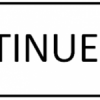I came into videogames journalism about two years ago. It, and the games industry as a whole, is full of people that I am trying desperately to respect. There is, however, a problem: a widespread inability to hold a civilized debate; an inability to discuss ideas, deal with criticism and operate in moderation.
It’s no secret there are a lot of serious problems in videogames journalism and development right now. Controversies have included the terribly named ‘Doritos Gate’ – why it wasn’t called ‘Halo-Gate’, as that was the actual offending sponsor, I will never know – ongoing spats about review scores and regular chapters in the oft-recurring topic of feminism or - as I like to call it - another shamefully delayed, and very necessary, social revolution.
One thing has become very, very clear to me in all of these furores: people have forgotten the value of critical thinking. It seems that everyone is so geared up to have at each other, to label random bystanders and display their proficiency with profanity or the latest and greatest in negative vernacular, that it seems to me that people have lost the ability to think clearly before launching into invective. Not only is this unhelpful, it’s almost exclusively destructive.
To demonstrate why it’s important to listen to criticism and think critically about what is said, I am going to take a couple of examples of exchanges on Twitter. A few people may be scoffing: “nothing of importance was ever said on Twitter”, or “the 140 character limit doesn’t lend itself to reasoned argument”. I’m not using these Twitter interactions as examples of bad writing, I’m using them as examples of bad logic and bad decision making.
In the first example, one Tweeter commented that, for him, discrimination isn’t an issue: he makes decisions about staff regardless of race, gender or any other irrelevant facet of a member of staff’s life. This information was communicated over 3 Tweets. The first two covered the point that discrimination isn’t an issue for him and the third clarified his employment practices. The initial two Tweets earned him the ire of another individual who I can only assume misunderstood the message being conveyed, and promptly launched an ad-hominem attack and coupled it with a petty hash-tag.
Summarizing: dude says he has taken efforts to stamp out discrimination and bias in his employment practices, second guy misunderstands and immediately goes on the verbal offensive. Someone who, if we take his assertion at face value, is pretty much the ideal in non-biased employment practices gets targeted by an overly enthusiastic defender of equality.
How should the second Tweeter have responded to the comments made by the first? I would say he probably should have asked for clarification first and, if the original Tweeter had turned out to be biased, set about trying to engage with and change the first individuals’ opinions. Changing opinions is more important than ‘pwning’ people who disagree with you. Changing attitudes, and thus actions, achieves a real world effect and makes actual progress toward eliminating discrimination. Finding a debate opponent and handing them their metaphorical arse on an equally metaphorical silver platter only serves to stoke your own ego. Moreover, an adversarial stance tends to be divisive and alienates potential supporters of your cause. Consensus building achieves things, whilst setting out to make enemies usually does more harm than good.
As an interesting aside to this exchange, a third Tweeter commented part way through: “Hey everyone! The white dude in his 40s says everything’s fine! WE CAN FINALLY RELAX”.
I hope everyone can appreciate the irony of using gender to dismiss points being made, whilst calling for gender equality. Throw in some casual racism and ageism, and damn, that’s one hell of a Tweet!
To head-off protestations about my viewing this as casual racism and ageism: it doesn’t matter whether the group you are discriminating against is currently very privileged - and white 40-something male is a very privileged group; any discrimination is still discrimination. You don’t get to define discrimination as only possible against certain parts of the population; indeed there is no logically sound way to do that: anyone can be discriminated against for any number of reasons. The frequency of the occurrence is irrelevant; if it is discrimination, it is part of the problem: it is not okay to discriminate on these bases. Ever.
I started this article talking about critical thinking; so in the spirit of things, I will state that discrimination on the basis of gender/race/age/creed/anything I have missed is illogical. Taking the example above, there is no reason why simply being male, white and in his 40s inherently makes our original Tweeter any more or less correct about anything he said. Moreover, using any of the previously mentioned attributes is an ad-hominem fallacy: rather than directly refuting his arguments, they were attacking him personally as a means of indirectly discrediting his arguments.
The logical side of things is only part of the problem. The current vogue of internet reactions seems to be extremes. Everything must be dealt with in an extreme way, or an extreme point must be made, or an extreme conclusion reached. Please, can we stop this bullshit? Having the bravado to make a strong statement is meaningless when that statement either serves only to alienate or massage your own ego: “I made a strong, powerful statement. How brave am I?”
I’ll take an example, again from Twitter, of this sort of nonsense: There was a hashtag that made me question the moral views of a few people and that tag, #killallmen, also made me realise that some people have about as much understanding of the value of positive grassroots campaigning as I have of programming star formation simulations, which is to say: not a lot.
But never fear, dear reader! One Anarchy-inspired Tweeter was there to set the record straight and explain to my peon brain that “kill all men” actually meant “down with the state/government/patriarchy” and that I was “stupid” for thinking otherwise. Well, pardon me.
No doubt you have noticed that only one of the 3 alternate explanations actually has any inherent link with being male and even then using “men” as a catch-all synonym for “the state/government/patriarchy” is a bit of a stretch. Unless, of course, being a man has made me part of an evil grand secret institution of ‘man-dom’ which encompasses the state/government/patriarchy. I feel I may have missed out on something; perhaps they have a super-secret cool handshake, and what about t-shirts or a monthly picnic? Do I get a free toaster for joining? I may never know!
To whoever started that hashtag: I thank you for playing right into the hands of the type of people who un-ironically use terms like “Feminazi” and who like to misrepresent feminism as a negative movement seeking only to cause harm to society. I will thank you, hashtag inventor, to note the sarcasm and in future to keep your political ideologies out of my equality. As a result of that hashtag, feminists may well have to answer charges of misandry, rather than carrying on as if misandry is just a concept and its real-world occurrence is so infrequent as to be negligible. To be utterly clear on this point: ‘misandry’ is a real concept; its real-world occurrence is, however and to the best of my knowledge, non-existent.
I’ve probably prattled enough at this point. Suffice to say that people need to more accepting of criticism. If people say something silly, regardless of how moral their cause is, they need to be open to the idea that people may agree with their cause, but criticise, among other things, their approach. Without people being open to criticism, feminism will fail. At the end of the day the feminist movement is reliant on people being willing to accept criticism and adjust their behaviour accordingly to eradicate sexism. It’s not enough to eliminate discrimination, we need to challenge discriminatory attitudes.
I am going to leave you with what I feel is an excellent example of how to deal with an opposing argument.








